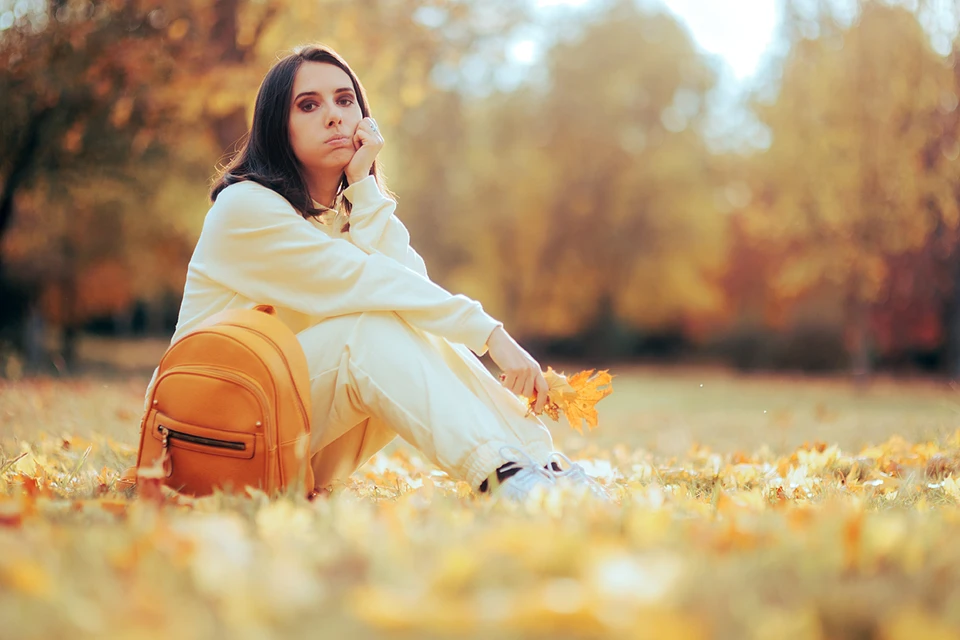
The transition from summer to autumn is often accompanied by melancholy
Photo: Shutterstock
We are not the first, and we certainly are not the last, to suffer from low mood and low vitality in the fall. The main thing is to distinguish a serious illness from seasonal melancholy.
Remember, in Pushkin’s “Eugene Onegin”:
“An illness whose cause
It’s time to find it long ago,
Similar to the English spleen,
In short: Russian blues
I mastered it little by little;
He will shoot himself, thank God,
I didn’t want to try
But I completely lost interest in life.”
The transition from summer to autumn is often accompanied by melancholy. “I have autumn depression” – some say this to attract attention, while others confuse this feeling with a real illness.
But for doctors, psychologists and psychiatrists, the difference between depression and simply low mood is huge.
– People often understand the word depression as a bad mood, – psychologist Elena Yarikova, candidate of psychological sciences, tells KP.RU. – Our mood is dynamic, it can change. And, indeed, during a period of temporary depression, a person looks at the world through a gray prism, with a gloomy and pessimistic view of everything. But still, the autumn blues and depression are two different things. And it is important to monitor your own condition and not miss dangerous symptoms that indicate the onset of the disease, and not temporary blues.

Psychologist Elena Yarikova
Photo: Personal archive
WHAT IS THE DIFFERENCE BETWEEN SLEEP AND DEPRESSION
WHEN APPEARS
Blues: During the cold season, when summer ends, there is little sun.
Depression: Regardless of the time of year.
TRIGGER
Blues: Except for the weather, there is none. The body is rebuilt and adapts to the cold. Hence apathy and fatigue, which soon disappear.
Depression: Occurs as a result of severe stress or against the background of unresolved internal/interpersonal relationships that torment and torment a person for a long time. As a rule, a person knows that there is a problem.
WHEN IT PASSES
Blues: After adaptation to weather conditions. Or due to distraction by new activities, positive events.
Depression: If left untreated (do not seek help from a psychiatrist or neurologist), the condition will progress and worsen.
WHAT WILL HELP YOU Cope?
Blues: Positive emotions, relaxation, meditation, communication with friends and family, a change of activity: even just wrapping yourself in a blanket and watching a TV series helps improve your mood.
Depression: Conventional methods do not help. If depression is at its height, a person loses the ability to rejoice and have fun. Psychological and medical assistance is needed.
DANGEROUS SYMPTOMS OF DEPRESSION:
– Low mood that has lasted for more than two weeks.
– Lack of appetite (or, conversely, attempts to eat a bad mood).
– Problems with sleep.
– Inability to control and independently cope with your condition and negativity. Endless pessimism and a negative outlook on the future.
– Anhedonia is the inability to receive pleasure, even from things that have always brought positive emotions.
– A painful feeling of guilt (for not being able to experience the same emotions, not having the strength to do ordinary things), decreased self-esteem.
– Cognitive impairment (decreased memory, attentiveness, concentration).
BY THE WAY
“Depression in older people can be caused not only by external factors, but also by chronic diseases – Alzheimer’s disease, thyroid diseases, diabetes, as well as taking certain medications. In any case, if these symptoms appear, you should not postpone your visit to the doctor,” notes Academician of the Russian Academy of Sciences, Professor Oksana Drapkina.